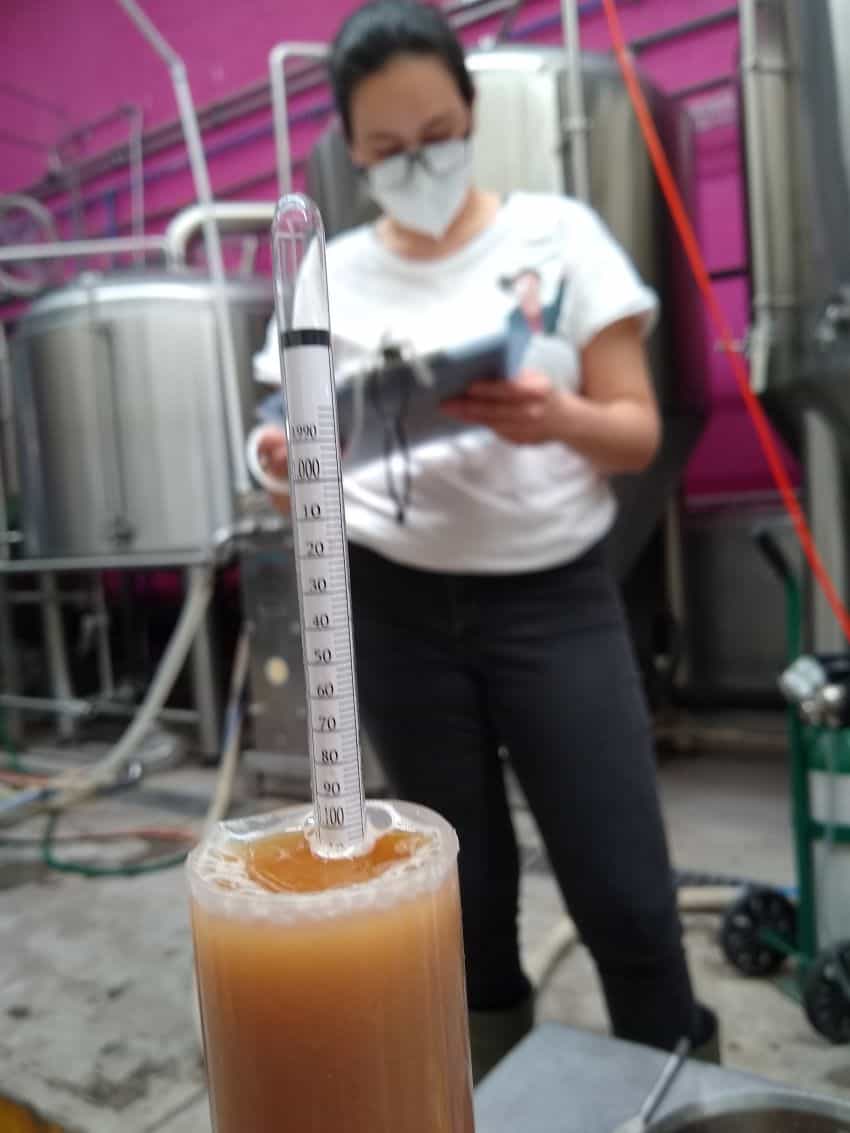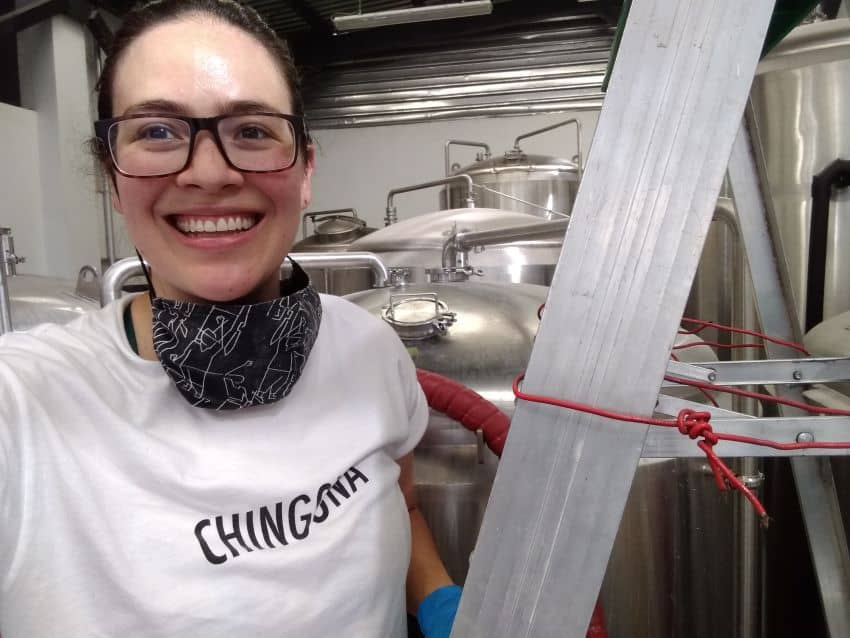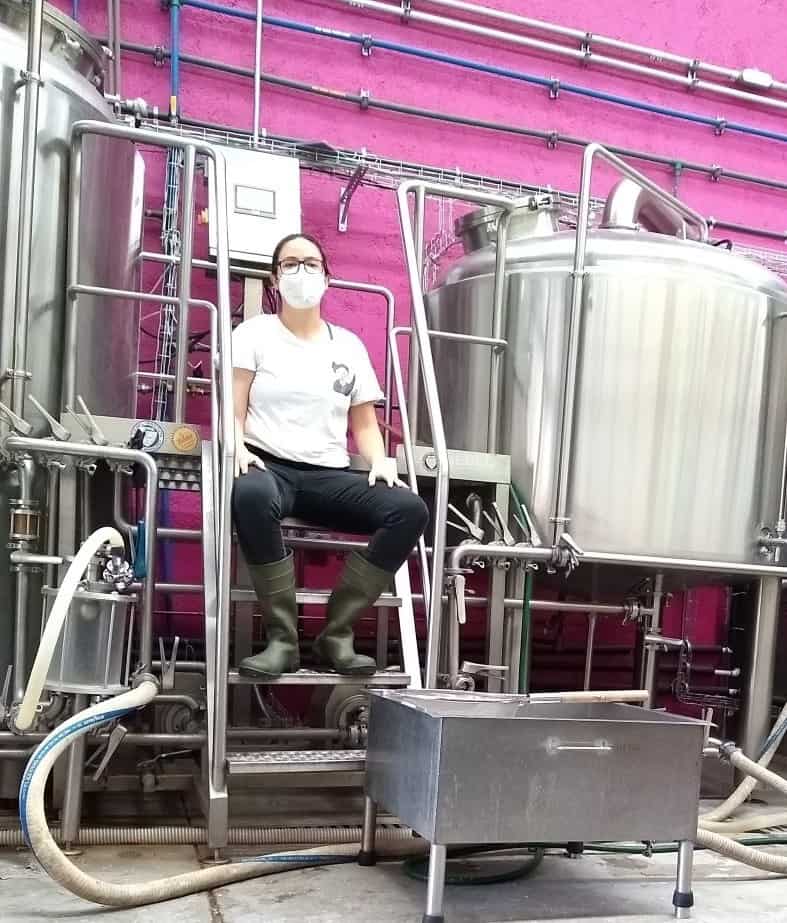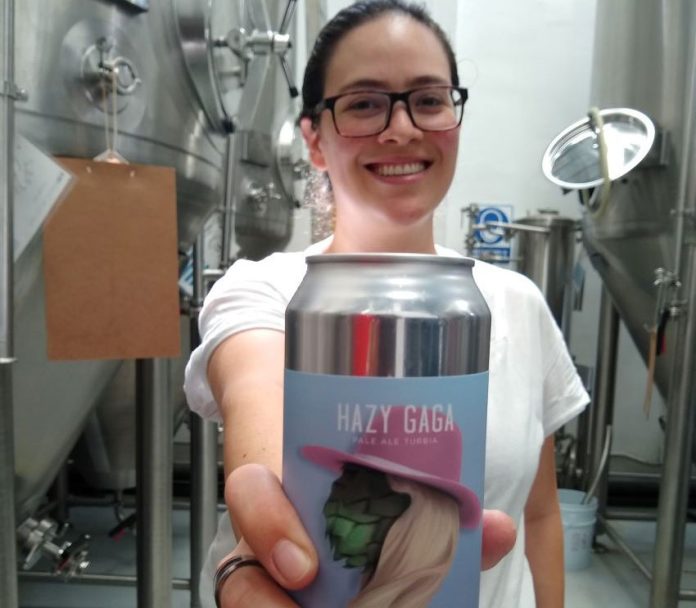What would you do to make your dream a reality? Sleep on a stranger’s couch? Commute two hours twice a day? Live in poverty? Live in isolation?
Mariana Domínguez did all that and more before she could start Cervecera Macaria, her new gypsy brewery in Mexico City, birthed in the middle of a global pandemic and one of the deepest global recessions in decades.
“I’ve been working in other breweries for a while now. I just didn’t have, I would say, the ovaries to open my own. It really represented a lot of struggle in my mind, and a lot of money that I didn’t have,” says Domínguez about her new project.
She is, in fact, still working for a lot of other breweries, brewing for both Cervecería Nevado and Cervecería Nebulosa while she does her own thing.
Fascinated by microbiology, when Mariana was getting her undergrad in food chemistry at UNAM eight years ago she and a friend decided to start brewing their own beer on the weekends in her kitchen. Novices both, they thought themselves pretty decent at the time, but now she sees things differently.

“They were terrible. We wanted to brew IPAs, which weren’t even close to being well-known in Mexico at the time. We had terrible batches, and we thought, ‘Well, at least we can improve this …’”
From there, she worked a string of brewing jobs, some that were dreamy but paid a pittance, some that were decently paid but endlessly boring and always with the added weight of being a chick in a dude’s universe — she was famously asked over and over if she could carry bags of malt on her own.
“Why would I need to do that?” she retorts. “What does that have to do with my skills as a brewer?”
At one point, she just skipped out of the country, working an unpaid internship in the United Kingdom and sleeping on the couches of other brewers just so she could expand her expertise. The dream of having her own brewery was a distant and impossible dream until she attended a conference for female brewers in Ecuador and met other women succeeding in the industry.
“I was able to meet people from Argentina, Chile, Ecuador, Peru, and probably 80% were the owners of their own breweries. They were small breweries, but they had just decided, ‘OK, I have to be my own business partner and my own brewer and my own everything because I don’t want someone else doing it for me, and I don’t want mansplaining’ and a lot of things other things I hadn’t really thought about. It was an eye-opener to meet them; it gave me a lot of ideas. That’s when I met the gypsy brewers.”
Those gypsy brewers were trading their labor in breweries they didn’t own for space to brew their own products. They would hire themselves out to whoever had the space for the entire production cycle, generally about five weeks, and that’s how they were building their brands.

During that trip, the seed was planted in Domínguez’s mind but it took a pandemic to convince her it was time to start her own production.
“With the pandemic came a lot of ideas. I was doing OK at the beginning, but later kind of panicking. So I just decided, ‘OK, I have to work with this and go to therapy and read some books and take some courses, and then, OK, maybe I can start my own brewery.’ I said to myself, ‘Why not? What could go wrong?’”
Last year, the year the world fell apart, was also the year when it seemed that all her skills and experience started to gel together. Local breweries kept asking her to collaborate with them, and she felt like she was finally professionally and emotionally ready to do her own thing.
“I had to do it right now, or I was never going to do it anywhere else, or at any other moment,” she said.
This past December, Domínguez got together with some friends from the Morenos brewery and created her first collaboration under the Cervecera Macaria label — a hazy pale ale called Hazy Gaga. Fresh and citrusy, it made a great stocking stuffer for many a beer lover this Christmas. At the same time, she released Mildred, her own recipe — an all-day drinkable mild ale with a tinge of chocolate, and surprising levity for a dark beer. Both sold beyond their expectations.
“They are almost completely sold out in the city,” she says proudly.

Starting a business in the middle of a pandemic hasn’t been the easiest thing to do, but there are upsides. Everyone is online now she says, even some of her Luddite relatives. And like a lot of businesses right now, social media has been her saving grace.
This year is going to be all about collaborations for Cervecera Macaria, including making a specialty beer for Mujeres Incendiarias, a Mexico City workshop space supporting women-owned brands. She’ll also collaborate with Cerveceros Arellano, another Mexican brewery.
The Cervecera Macaria brand is one of the pandemic businesses to watch this coming year, one of those little rays of sunshine to come out of this dark time. Their next batch can be found at TBC Clavería, Cebada Malteada, Agave y Uvas, and about a dozen or more stores in Mexico City, as well as in Monterrey, Morelia and León.
Lydia Carey is a regular contributor to Mexico News Daily.
